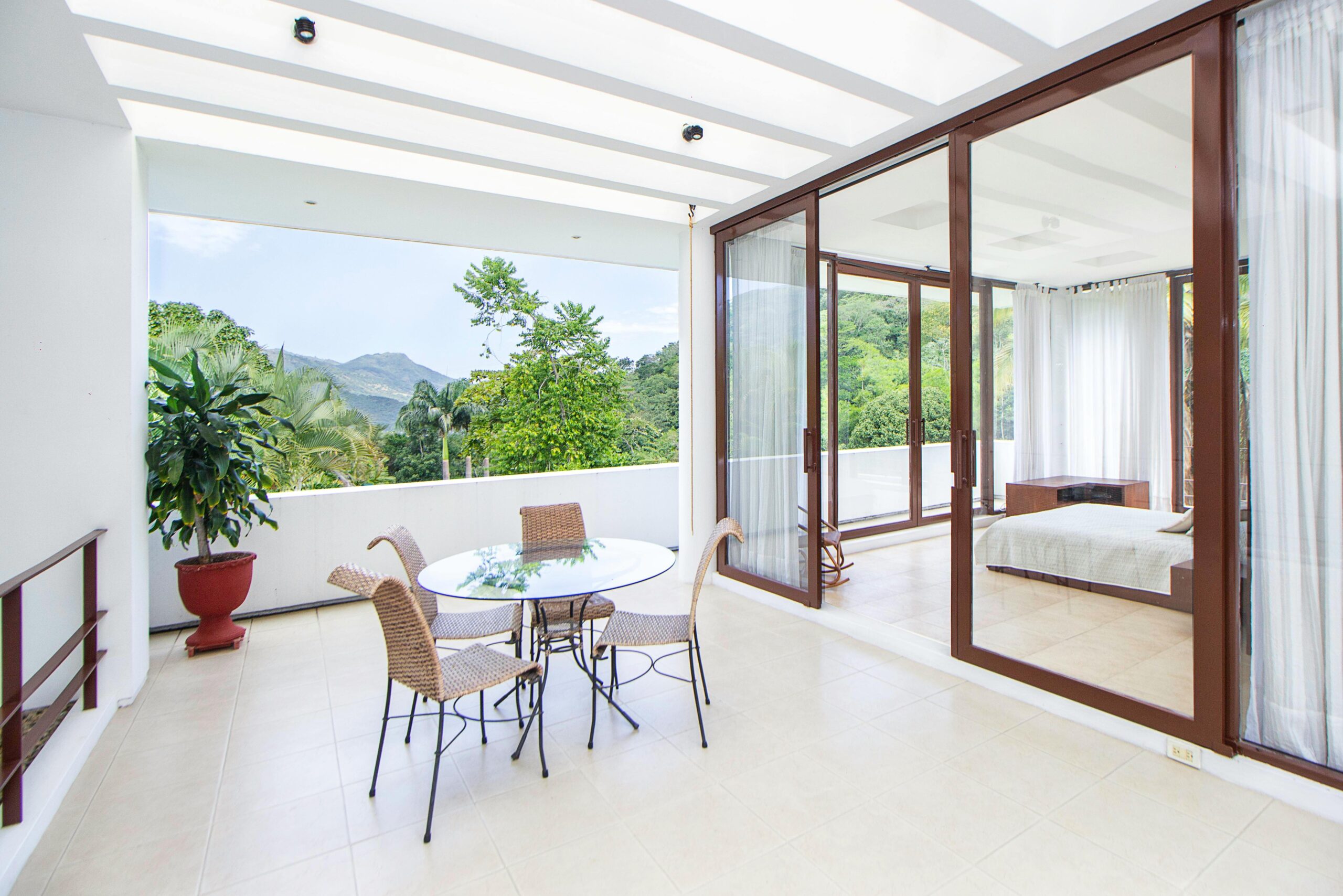In this article, you will learn how to choose between a fiberglass or vinyl sliding door.
When choosing a sliding patio door, most homeowners compare two popular options: fiberglass and vinyl. Both materials are energy-efficient, low-maintenance, and durable — but they perform differently depending on your needs and budget.
Fiberglass doors are built with glass fibers and resin, creating a solid, weather-resistant composite. This makes them incredibly strong, stable, and resistant to warping, even in extreme temperatures.
Vinyl doors, on the other hand, use PVC (polyvinyl chloride) — a lightweight and affordable material that provides decent insulation and easy installation. However, vinyl can become brittle over time or deform under prolonged heat exposure.

From my experience, fiberglass sliding doors clearly outperform vinyl in durability. They resist dents, scratches, and warping — qualities that matter if you live in areas with hot summers or cold winters. Vinyl is more prone to wear and may fade or crack sooner, especially under direct sunlight.
Fiberglass doors usually have better insulation thanks to foam-filled cores and tighter seals. I’ve noticed a tangible drop in energy bills after switching from vinyl to fiberglass, especially during colder months. Vinyl offers decent efficiency but can’t quite match fiberglass performance in maintaining indoor temperatures.
If aesthetics matter, fiberglass wins again. It’s available in a wide range of styles, finishes, and even wood-grain textures. You can paint or stain it to match your home’s décor. Vinyl designs tend to be more limited, often bulkier and less customizable.
Here’s where vinyl takes the lead: it’s more budget-friendly. If you’re on a tight budget or need a quick replacement, vinyl sliding doors are easier to install and cheaper upfront. However, fiberglass may be a smarter long-term investment since it lasts longer and requires fewer repairs.
Both materials are low-maintenance, but fiberglass keeps its look longer without yellowing or cracking. In my case, fiberglass required only an occasional cleaning, while vinyl needed periodic adjustments due to minor frame shifts.
After testing both types in different homes, I can confidently say that fiberglass offers better performance overall — especially for durability, energy efficiency, and customization. Vinyl, however, remains a practical choice for those who prioritize affordability and quick installation. Ultimately, the best option depends on your budget and priorities. If you plan to stay in your home for many years, fiberglass pays off. If you’re remodeling to sell or need a fast upgrade, vinyl works fine.
You live in an area with temperature extremes.
You want long-term durability and fewer replacements.
You value design flexibility and energy savings.
You’re looking for a cost-effective and quick installation.
You don’t need high-end finishes or heavy insulation.
You prefer a simple, low-maintenance door option.
In humid or coastal regions, fiberglass resists moisture better and avoids frame distortion. For mild climates or rental properties, vinyl remains a solid, low-cost solution.
| Feature | Fiberglass Sliding Doors | Vinyl Sliding Doors |
|---|---|---|
| Durability | Extremely strong, resists warping, dents, and scratches | Prone to warping or cracking over time |
| Energy Efficiency | Superior insulation, reduces energy bills | Moderate insulation, less efficient in extreme temperatures |
| Design & Customization | Wide range of styles, colors, and wood-look finishes | Limited design options, bulkier frames |
| Maintenance | Low maintenance, holds finish for decades | Requires occasional adjustments or cleaning |
| Cost | Higher upfront cost, long-term value | Lower initial cost, ideal for budget-conscious buyers |
| Installation | Professional installation recommended | Easier and faster DIY installation possible |
| Weather Resistance | Excellent performance in hot or cold climates | May deform under extreme heat or cold |
| Lifespan | 40–50 years with minimal maintenance | 20–30 years depending on conditions |
In my own experience, fiberglass doors were worth the higher upfront cost — they looked better, performed better, and lasted longer.
Fiberglass generally lasts up to 50 years, while vinyl may last 20–30 depending on exposure.
Yes, they deliver better insulation, longevity, and appearance.
Absolutely. Many fiberglass doors feature wood-grain finishes that mimic real timber.
Fiberglass resists warping and cracking, while vinyl can expand or contract slightly with temperature changes.



Palm Beach County
Boca Raton, Highland Beach, Delray Beach, Boynton Beach, West Palm Beach, Jupiter, Palm Beach Gardens, Wellington, Palm Springs, Greenacres, Juno Beach Florida
Broward County
Parkland, Pompano Beach, Coral Springs, Coconut Creek, Margate, Deerfield Beach
Are you looking for sliding door repair services? If your sliding door is giving you the trouble we can help.
Perfect Sliding Doors has been in the sliding door business for over 12 years. We know our sliding doors inside and out, and we’ll make sure your sliding door operates smoothly.
Perfect Sliding Doors offers a wide range of sliding door installation and repair services. We’ll help you find the perfect sliding door for your home and provide the best installation and repair services around.
Sliding Doors, and Sliding Door Related Products. We offer the best sliding doors, sliding door installation, and sliding door repair services.